
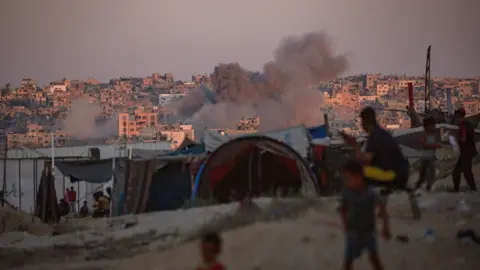 News
NewsIf the local newspaper leaks are true, even Israeli defense officials are urging Prime Minister Benjamin Netanyahu to reach an agreement and agree to a ceasefire in Gaza.
Since Israeli negotiators last visited the Qatari capital for talks, the stakes – and the pressure – have only increased.
In Israel, relatives of hostages still held in Gaza call this “the last chance” to get some of them out alive.
In Gaza, the Hamas-led Health Ministry, whose data has been used in the past by the UN and Israel, says the number of people killed in Israeli operations since the war began has now surpassed 40,000.
And the United States is moving a second aircraft carrier and a missile submarine into the region, following threats by Iran and its Lebanese ally, Hezbollah, to attack Israel in response to the assassinations of top Hamas and Hezbollah leaders last month.
There is no shortage of incentives to close a deal.
And there is no shortage of pressure. The US believes that a truce in Gaza could help calm the entire region.

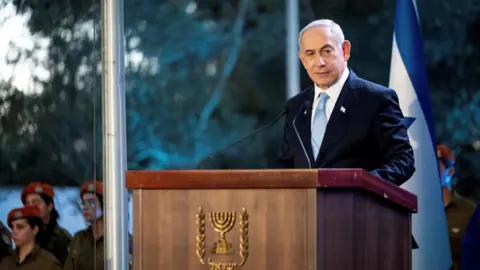 News
NewsVisiting Lebanon on Wednesday, U.S. envoy Amos Hochstein said a deal would also help create the conditions for a settlement in the escalating cross-border conflict between Israel and Hezbollah.
“We have to use this window for diplomatic action and diplomatic solutions,” he said. “That time is now.”
His boss, President Joe Biden, appears to be managing expectations. “It’s getting harder,” he told reporters in New Orleans this week, adding, “I’m not giving up.”
With so much to gain, why are hopes for these talks so slim?
First, the red herring: Hamas’s statement that it would not send a delegation to the meeting is unlikely to have any significant impact.
The negotiations have always been indirect, a diplomacy of passage: Hamas representatives do not speak directly with Israel or the United States. And the group’s main international base is Doha, where the talks are held and where Qatari and Egyptian negotiators have an open channel of communication with them.

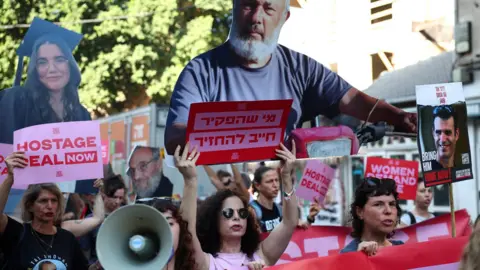 News
NewsThe real problem, according to former Israeli hostage negotiator Gershon Baskin, is the lack of motivation on the part of Israeli and Hamas leaders.
“The United States, Egypt and Qatar have decided that they have to change the rules of the game: put an ultimatum on the table, put a bridge proposal on the table and tell Hamas and Israel that they have to do it,” he said.
“[But] It is obvious that the mediators want the agreement more than the parties, and this is a major part of the problem.”
Chen Avigdori’s wife and 12-year-old daughter were among 251 people kidnapped by Hamas in the October 7 attacks on Israel, when another 1,200 were killed. The couple were released in November and he is now campaigning to free the remaining 111 hostages.
“I think they’re both holding it back,” he said. “I think Sinwar doesn’t care much about his people. But I think Mr. Netanyahu has missed some opportunities that Israel already had to sign the agreement.”

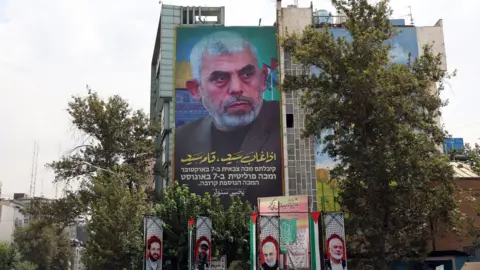 EPA
EPAFor Yahya Sinwar, one of the masterminds of the October 7 attacks, who became political leader of Hamas after the assassination of Ismail Haniyeh in Tehran, some analysts believe that the calculations could change.
“I think Sinwar wants to save himself and Hamas, because they have not been completely destroyed, but militarily they have been defeated and there could be a rout,” said Chuck Freilich of the Israel Institute for National Security Studies.
“Netanyahu is in a more difficult position, because if an agreement is reached, there is a very good chance that he will lose his coalition.”
So far, Benjamin Netanyahu has stuck to a few red lines, including giving Israel the right to resume the war if subsequent talks on troop withdrawal and prisoner exchange fail.
Netanyahu’s far-right allies have vowed to withdraw from government if, for example, he agrees to free large numbers of Palestinian prisoners from Israeli jails in exchange for the hostages.

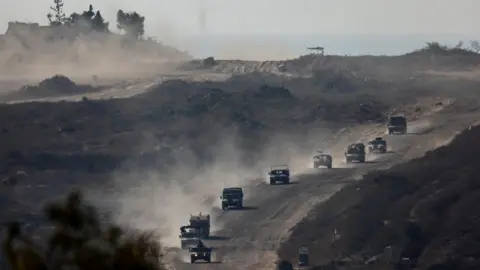 News
NewsThe sticking points negotiators face are substantial. But proposals to overcome some of them have been widely reported in the Israeli media.
For example, Mr. Netanyahu’s insistence that Israeli forces remain on the Gaza-Egypt border, to stop armed groups from smuggling weapons, has been countered with solutions that involve technology and the involvement of allies on the ground.
Hamas accused Israel of introducing new demands and said the time for negotiations was over. It said it was ready to implement the terms agreed last month. Israel denies adding new conditions, describing them as an attempt to clarify what had already been agreed.
The international mediators of the deal (the United States, Qatar and Egypt) certainly have some leverage over the two sides, but it may not be enough to force an agreement if the parties themselves do not want it.
“The United States and Qatar can push, they can cajole, they can offer incentives, they can offer to help create the technical solutions,” says Chuck Freilich. “But ultimately, it’s up to the specific leaders.”
Ultimately, the fate of these talks, of Gaza, of the hostages – even the fate of the region itself – will depend on the calculations of two wily survivors; two men at war.





